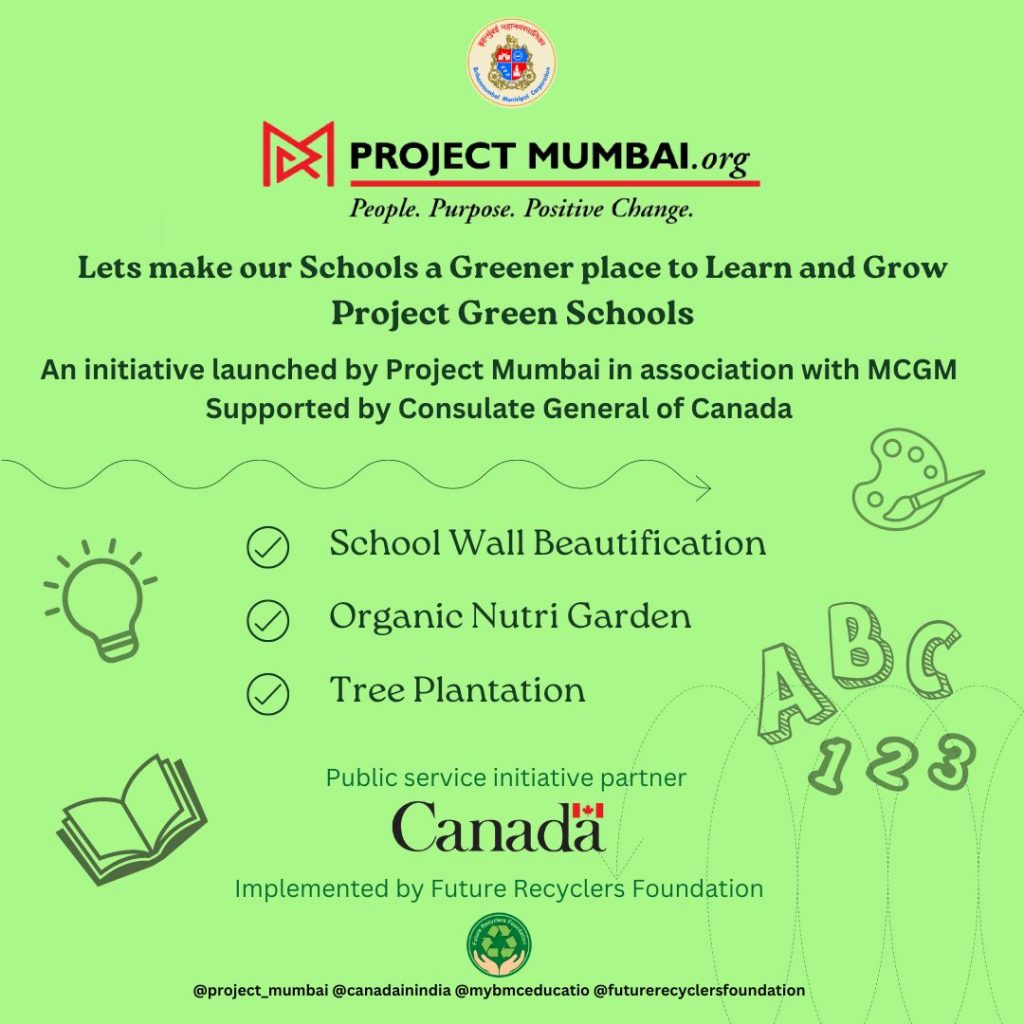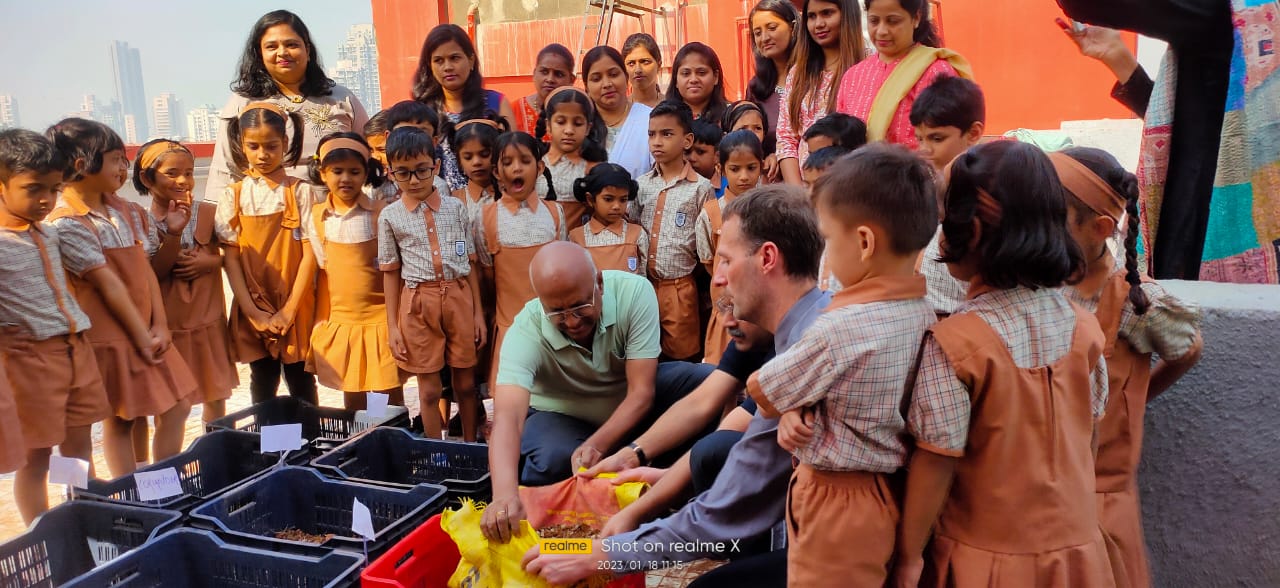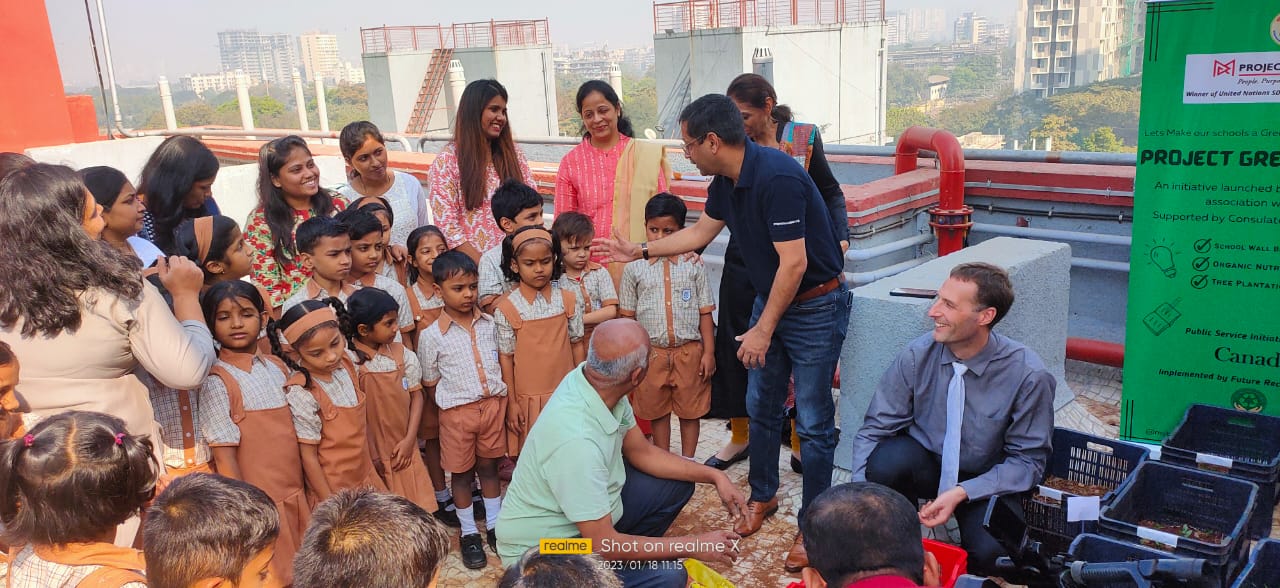Past Environment
- Home
- Past Initiatives
- Past Environment
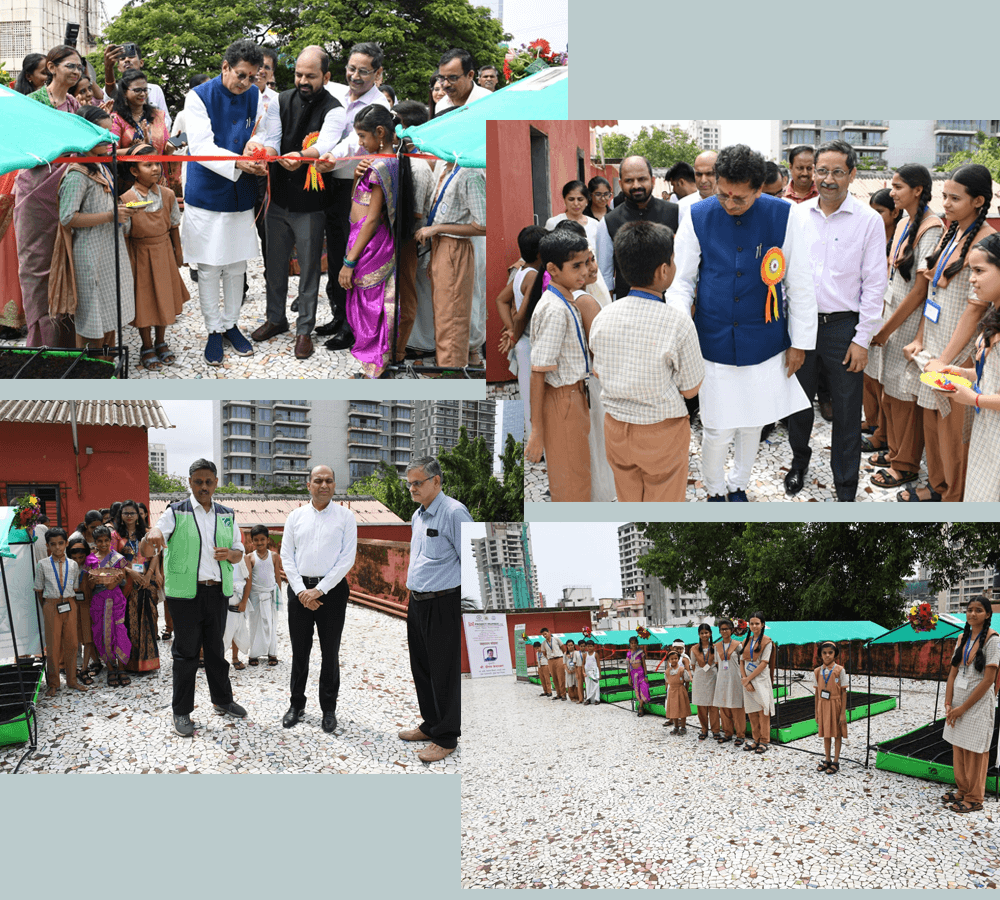
LEARNING 2.0 - Inclusive Education IN BMC Schools
- Read Mumbai – Setting up reading libraries in BMC schools
- Green School – Kitchen Garden- Installation of Portable framing Systems on school terraces
- Tech Tool 2.0 – Digital Literacy and Skilling in Schools
- Dashboard for NGOs
- Samavesh – Inclusive education for special children schools
- The Smiling School Project – Mental Health for Children
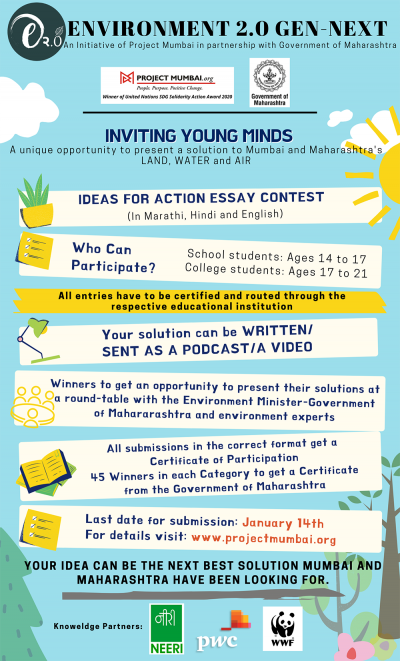
ENVIRONMENT 2.0 GEN NEXT
Project Mumbai in partnership with the government of Maharashtra, Department of Environment and climate change, brought together a gathering of influencers across the spectrum who spent quality time to present a result oriented, time bound environment action plan for Mumbai, the Mumbai Metropolitan Region (MMR) and Maharashtra.
National Environmental Engineering Research Institute (NEERI) and PwC were the knowledge partners for this historic decisive gathering.
The uniqueness of this gathering was that in Mumbai and Maharashtra’s Gen next, students between 14 to 21 were invited to help shape this policy which would help to understand how we should be dealing with our environment – land, water an air.
This was done through a hugely interactive ‘Ideas for action’ essay contest across languages and was judged by an eminent set of credible names
- Environment 2.0 was an initiative carried out by Project Mumbai in partnership with PWC, Neeri and goverment of Maharashtra.
- Make the world a better place
- Share your love for community
HARITA – GREEN FELLOWSHIP
Harita – The Green Footprint Fellowship brought to you by Project Mumbai in collaboration with Ministry of Mumbai’s magic with the MCGM is back.
The objective of the fellowship is to build awareness and consensus towards the city’s greenery and to create a community of caretakers.
- Almost 100 fellows across Mumbai Metropolitan Region applied for the fellowship and 84 fellows have been shortlisted on the basis of their location availability.
- The fellows who joined came from varied backgrounds such as architects, urban planners, designers, students engaged in social work
- This 3 month fellowship program is an opportunity to become future sustainability champions and get a chance to contribute towards building a green and habitable city for all.
- Share your love for community
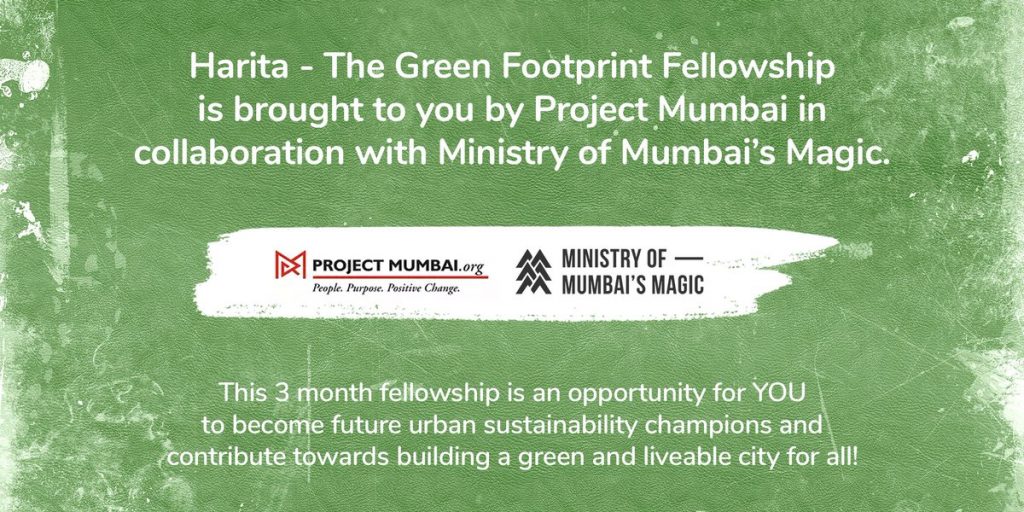
Project Green School
Project Green School, an initiative by Project Mumbai aims to engage school administrators, staff, parents & most importantly students to engage in environmental activities like growing their own food in organic garden & planting trees in their school campus.
We have also taken on the task to beautify the walls of the schools so that the students spend their time at a safe, energizing & attractive learning environment.
With the help of the BMC Education department, we have started activities in 2 BMC schools namely MPS LK Waghji Cambridge Matunga & Nadkarni Park Marathi School, Wadala.
The Matunga school has been adorned with a wall painting of Buckingham Palace depicting traditional ceremony of Change of Guard along with planting of native Indian trees in their school ground.
We spoke to the students, teachers & parents about the important role trees play to provide oxygen to the environment & make the air quality better.
We have revived the oldest form of indigenous art on the walls of Nadkarni Park Marathi School by creating Warli wall artwork. The painting is the most ancient form of art talking about the tribal way of life through folklores & geometric figures made from lines, dots, triangles & circles. The students have developed a keen interest in art & have developed a curiosity in getting to know the origins of the art.
An organic nutri-garden has been established in both the schools, by far the best learning experience for students outside the classroom.
Children have, very enthusiastically, helped to set up the garden by setting up the garden beds, adding soil, planting seeds & watering them. This will motivate them to protect the environment as they grow older.
We are grateful to High Commission of Canada in India for supporting us in this endeavour.


